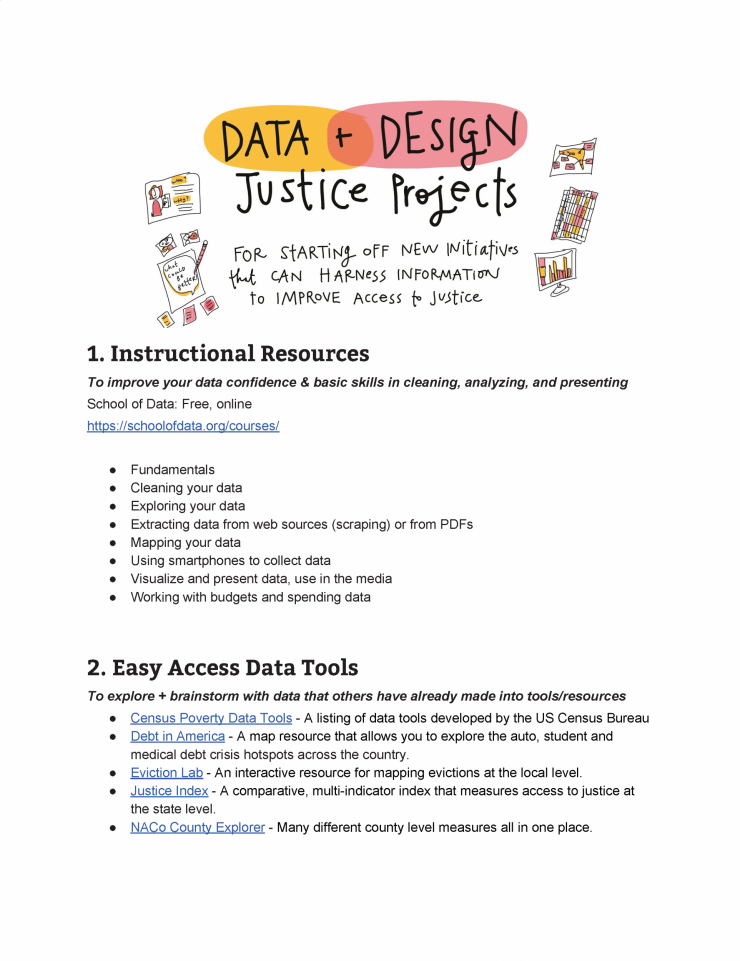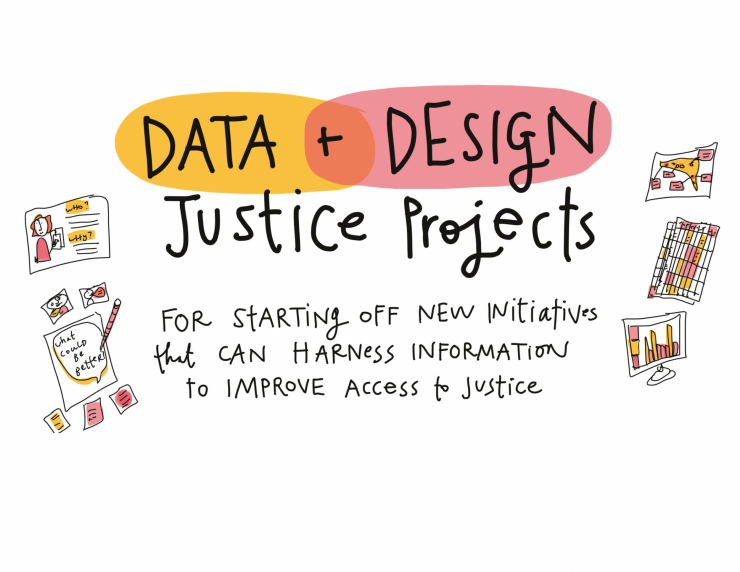Effective use of data and design can be a powerful driver of successful access to justice solutions. This session, inspired by the “School of Data” workshops for journalists, educated and empowered those working in the legal and social sector to use these tools effectively. The workshop leads provided an overview on trends in data, noting the explosion in sources of and amount of data, including from sources in the “internet of things” thought to have strictly commercial value, but with ever-increasing applicability to solving larger social and justice problems. Another key trend is that a provider-centric approach to delivering legal services is giving way to a person-centered view of legal needs, driven by survey and other data. For example, increased use of data demonstrated that the allocation of legal provider resources were not well matched to the legal needs of the population, such that, for example, many providers offered family law services when a great number of people reported medical issues as their primary legal need. The working session then described and examined a series of case studies of individuals or organizations that had mined data sources or otherwise used data in order to better understand or tackle a justice problem, such as Clear My Record by Code for America. Outcomes included increased data-literacy, the ability to spot data-project potential, and building a collaborative data and design ecosystem.
Read the full summary for this working session.
Additional Resources:

Data + Design Justice Projects Handout with Resources

Data + Design Justice Projects Case Studies


